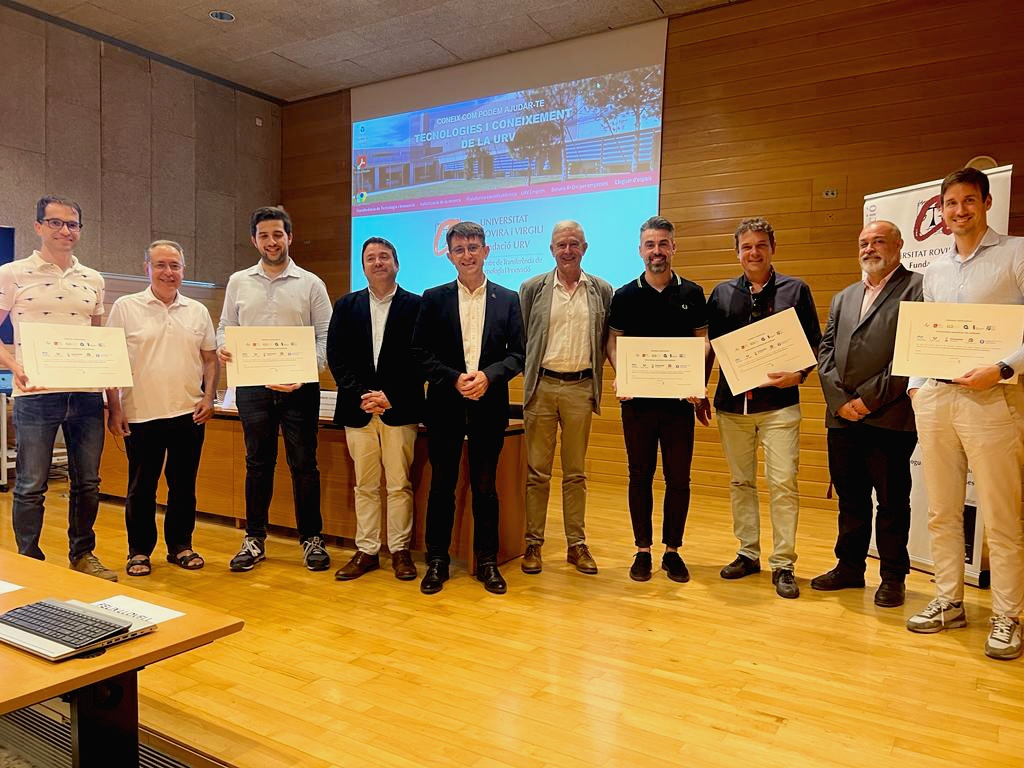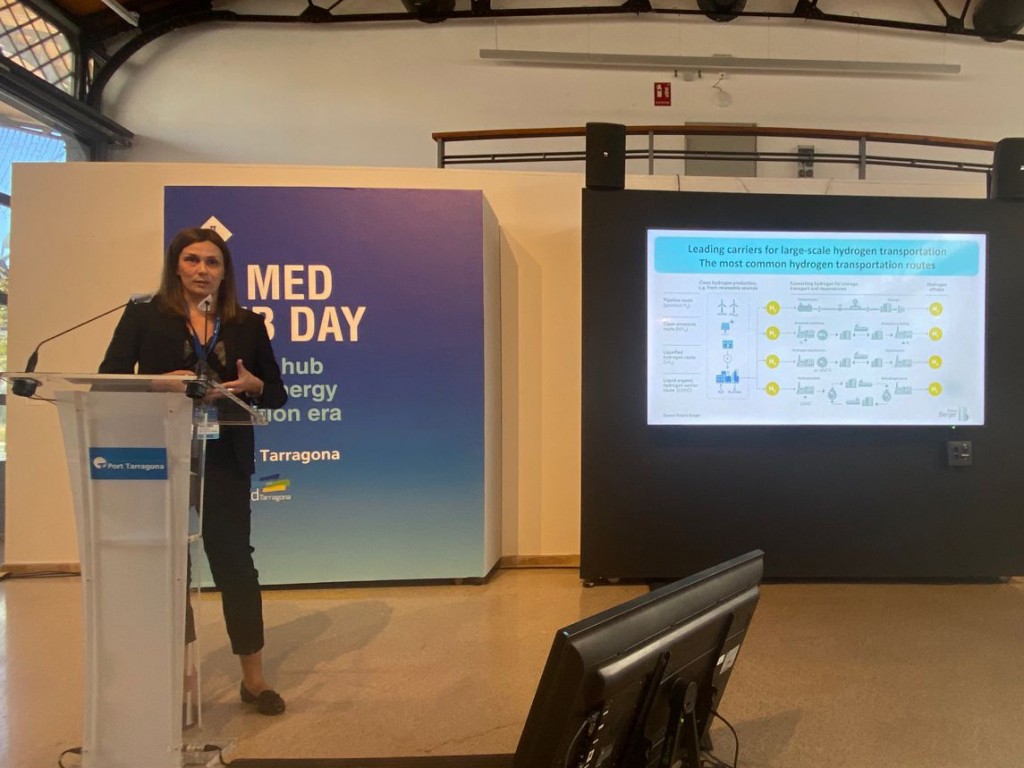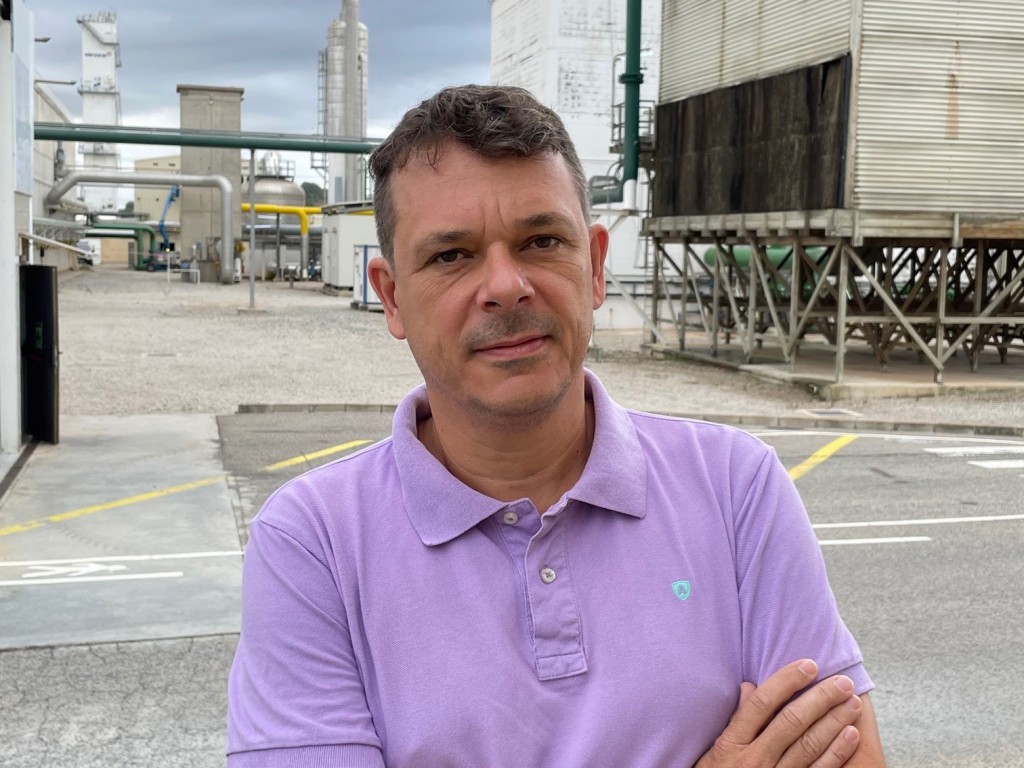27/07/2023
The first graduates of the Master’s Degree in Hydrogen Technologies, ready to tackle the decarbonisation of industry
The first edition of the inter-university master's degree in an emerging sector with a high demand for professionals has concluded

The first edition of the inter-university master's degree in an emerging sector with a high demand for professionals has concluded
The first edition of the inter-university master’s degree in hydrogen technologies has concluded and been positively assessed by the graduates. They make particular mention of its potential in the context of decarbonisation in a sector in constant growth. María Antònia Santacreu, an engineer with ten years of professional experience in the oil sector has now moved to the hydrogen sector and decided to take part in the first edition of the master’s degree to familiarise herself with the technologies and the professionals who are working in the field.

For Santacreu, “hydrogen has and will have an important role to play in current and future industrial processes in the Tarragona petrochemical complex and in mobility throughout Catalonia and Europe. It is therefore necessary to continue training professionals in this field. She encourages other students to take it, as “it is a very complete programme for professionals because of the internships, the controls in all the subjects, the visits to companies and the final project”. She points out that “it needs a lot of dedication” as “it provides extensive knowledge of hydrogen technologies and the main aspects of the whole value chain.”
According to Alberto Coronas, professor of the Department of Mechanical Engineering and academic coordinator of the Tarragona branch of the master’s degree, “collaboration between universities, training and research centres and local companies has been fundamental to the development of the programme,” which focuses on providing students with the skills they need to develop, manage and lead hydrogen technologies and their applications in industry, in line with European decarbonisation strategies.
Jesús López, a technical engineer and student on the master’s degree, values the interdisciplinary approach to hydrogen very positively. “I knew about hydrogen as a product, but I had not dealt with it from this industrial perspective, and now I have an overall understanding that I can apply.” He also pointed out that the online delivery of most of the programme made it easier for him to attend the course.

One of the main advantages of the URV is its proximity to the industrial environment, as Coronas explains: “Here we have one of the largest producers of hydrogen and all the industry that is concentrated around is unique and strategic. We have a large industrial complex nearby, and several companies have become involved in this master’s degree, both in the practical sessions and in the final projects”.
The students have a wide range of backgrounds. Engineers predominate, but workers and technicians from other fields have also taken part. Coronas points out that this type of master’s degree is also an opportunity for new graduates who want to specialise in an emerging sector with considerable potential for growth, as the industry needs specialists who understand the processes and technologies related to hydrogen and, therefore, are highly employable.
“I am convinced that hydrogen will be part of our lives, whether we like it or not. Although it will probably arrive much later than expected. It is a necessary and fundamental commitment, and the industry needs to adapt”, says Jesús López. He goes on to point out that the course has enabled him to form his own opinion that helps him to understand the current situation of the sector. The Universitat Rovira i Virgili is now offering the third edition of this master’s degree, which will begin in October. In this way, it shows that it is committed to training professionals capable of leading the transition towards a future of sustainable energy and reaffirms Tarragona’s role as a key strategic point in the training of experts in the field of hydrogen.
This master’s degree is backed by five Spanish universities: Mondragon Unibertsitatea, the University of the Basque Country/Euskal Herriko Unibertsitatea, the Technical University of Catalonia, the Universitat Rovira i Virgili and the University of Zaragoza, together with six other training and research centres: Somorrostro Integrated Vocational Training Centre, the Comte de Rius Institute in Tarragona, the School of Work in Barcelona, the Integrated Public Vocational Training Centre Pirámide, the School of Industrial Organisation and the Hydrogen Foundation of Aragon, and several companies.
